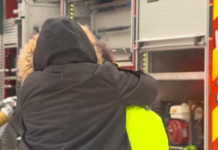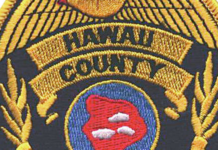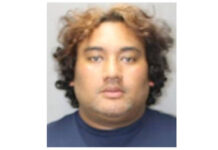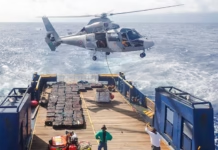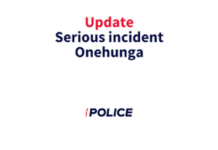‘Oku taupotu ‘i lalo ha fakamatala fakaTonga
The Government’s decision on whether to relax one of New Zealand’s last Covid-19 rules is not “clear cut”, Prime Minister Chris Hipkins says.
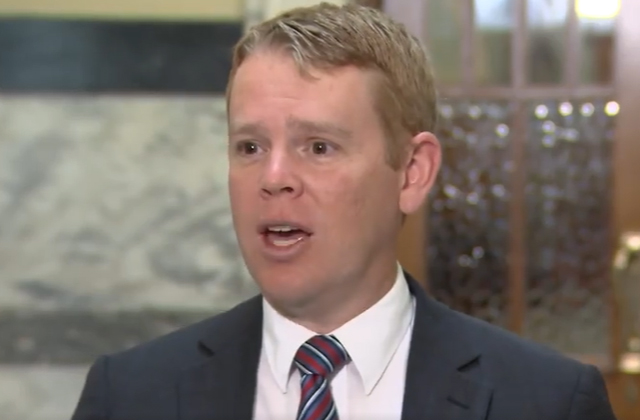
Later today, ministers are reviewing whether to keep or modify the country’s last remaining public health restrictions on Covid-19 — including the mandatory seven-day isolation for people who test positive. A decision will be announced soon after.
Speaking to Breakfast, Hipkins also confirmed that a minor Cabinet reshuffle would happen today, with the fate of Stuart Nash’s portfolios to be announced.
On health, he said the Government’s decisions around Covid-19 would continue to be “finely balanced” as the virus receded into the background for many Kiwis.
When asked, Hipkins did not rule out dropping mandatory isolation and instead replacing them with health recommendations.
“It’s a finely balanced issue,” he said.
“One of the pressures we had last year was that a number of kids went to school with Covid-19 and gave it to their teachers.
“We ended up short of teachers, which means kids ended up being at home for longer, which means parents couldn’t go to work.
“All of these things are the sorts of things that we have to work our way through. It’s not a clear-cut decision.”
He said Cabinet would consider case numbers, impacts on the health system, and the disruption to people’s ability to participate in the economy when making its decision.
The Ministry of Health is also expected to release its latest week-to-week report of Covid-19 case numbers today
Daily figures up until yesterday showed a relatively stable trend of new cases being reported to authorities in the past week.
Otago University epidemiologist and public health expert Michael Baker told Breakfast that there were “big gains” for New Zealand if Kiwis stayed home when they were sick.
Benefits included reducing the strain on the health system and killing fewer people prematurely from preventable infections like Covid-19, but also the flu.
“When you have those symptoms, you should stay at home and I think that’s one of the big lessons from the pandemic.”
Baker said New Zealand had already had a “very vigorous response” to Covid-19, but that he is reluctant to support an easing of isolation rules.
“The core of that is vaccines and boosters being freely available. And hopefully, all eligible New Zealanders will take advantage of that.
“But we have to think about the other measures as well. One of the big things we’ve learned from Covid-19 is that if you have a respiratory illness, you shouldn’t go to work, go to school, go to social events, and spread that infection around.
He said the legal requirement to self-isolate added “considerable weight” to people’s judgment calls about whether to stay at home.
“It does add considerable weight to know that this is an expectation. In many ways, it’s just how we treat the roads. To make roads safe, we have laws and regulations and that way, we can share roads in relative safety.”
FAKAMATALA FAKATONGA
Ko e tu’utu’uni ‘a e pule’anga pe ‘e fakangaloku ‘a e taha e ngaahi tu’utu’uni fakamuimui ‘a Nu’u Sila ‘oku kei toe mai ma’a e Koviti 19 ‘oku teeki ke mahino ‘aupito.
Pehe ‘e he Covid-19 Response Minister Chris Hipkins ko e ngaahi fakangatangata fo’ou ko e tali ia ki he kei fakalalahi fakamamani lahi ‘a e ngaahi keisi’.
Anenai ange he ‘aho ni na’e liviu ‘e he kau minisitaa pe ‘e tauhi ai pe pe ko hano liliu ‘a e toenga fakangatangata ‘a Nuu Sila ki he Koviti 19 – kau ai ‘a e ‘aho ‘e fitu pau ki he fakamavahe ma’a e kakai tesi positivi’.
‘E toki fakamahino ‘a e tu’utu’uni ko ia taimi si’i mei heni.
‘I ha’ane lea ki he Breakfast ne fakapapau’i ‘e Hipkins ‘e ‘i ai ha ki’i liliu si’i he ngaahi lakanga kapineti’ kau ai ‘a e iku’anga ‘o e ngaahi potungaue ‘a Nash.
I he mo’ui, na’a ne pehe ko e tu’utu’uni ‘a e pule’anga ki he Koviti ‘e hoko atu pe ke fakapalanisi he kuo holo ‘a e vailasi ki he tokolahi ‘o e ka Kiwi.
Na’a ne pehe ‘e ‘ikai pehe ke to’o ‘ a e fakataputapui ki he fakamavahe’i kae fetongi’aki ha fale’i ki he mo’ui.
Na’a ne pehe ‘e fakakaukau’i ‘e he Kapineti ‘a e fika ‘o e ngaahi keisi, ene uesia ‘a e sistemi ‘a e potungaue mo’ui, mo ‘ene hoha’asia ‘a e ivi malava ‘o e kakai ke kau ki he ki he ngaahi me’a ekonomika he taimi ‘oku fai ai ‘a ene ngaahi tu’utu’uni ki ai.
Oku ‘amanaki foki ke tuku ange mai ‘e he Potungaue Mo’ui ‘ene lipooti fakamuimui taha fakauike ki he lahi ‘o e keisi Koviti ‘i he ‘aho ni.
Ko e ngaahi fika faka’aho ne tuku ange mai he uike ni ne ha ai ‘oku ki’i tu’uma’u ‘a e hu mai ‘a e ngaahi keisi fo’ou.
Pehe ‘e Michael Baker ko ha ‘epitemolosisi mei he ‘univesiti o Otago ko e ikuna eni ki Nu’u Sila kapau ‘e nofo ‘i api ‘a e kakai he taimi ‘oku nau puke ai.
Ko e lelei ‘e ma’u ai ko e si’i ange fakakavenga ki he potungaue mo’ui pea si’i ange mate kei iiki ‘a’ e kakai mei he mahaki ko eni oku lava pe malu’i kau ai mo e fuluu’.
Pehe ‘e Baker ka kuo ‘i ai ha fak’ailonga sai ange ke ke nofo ‘i api.

